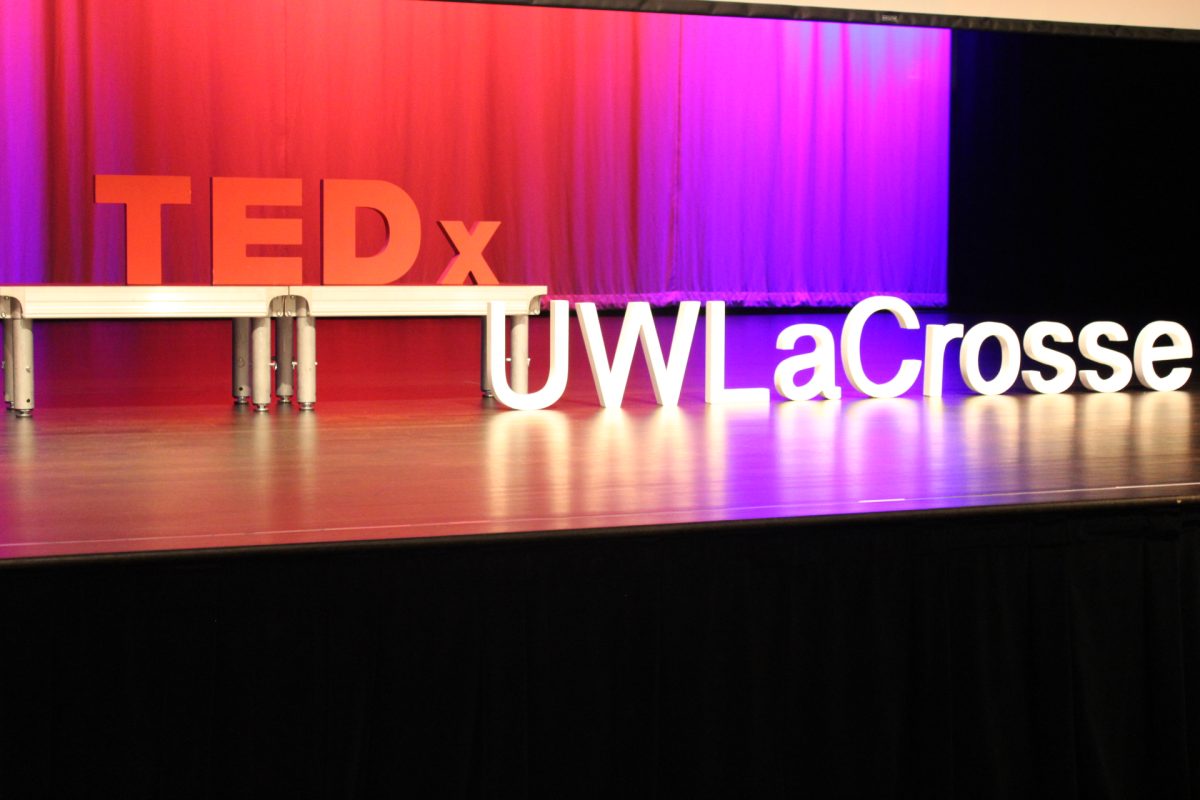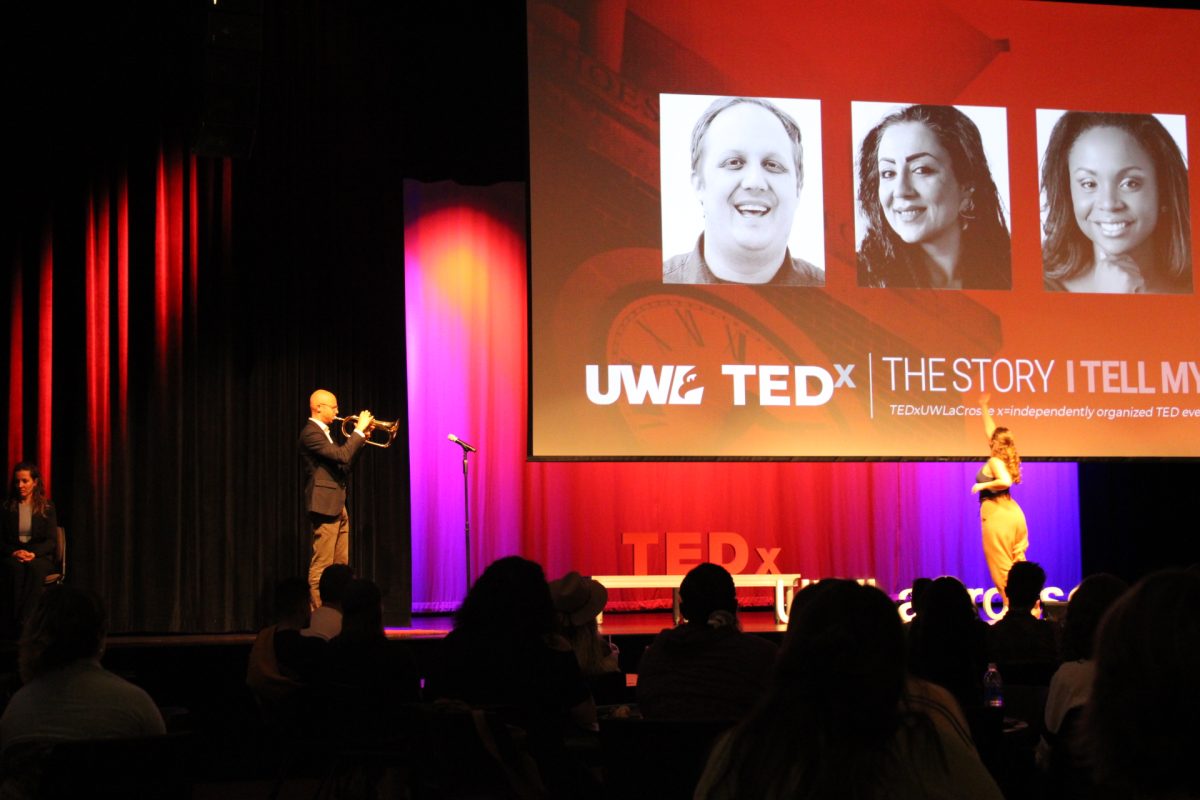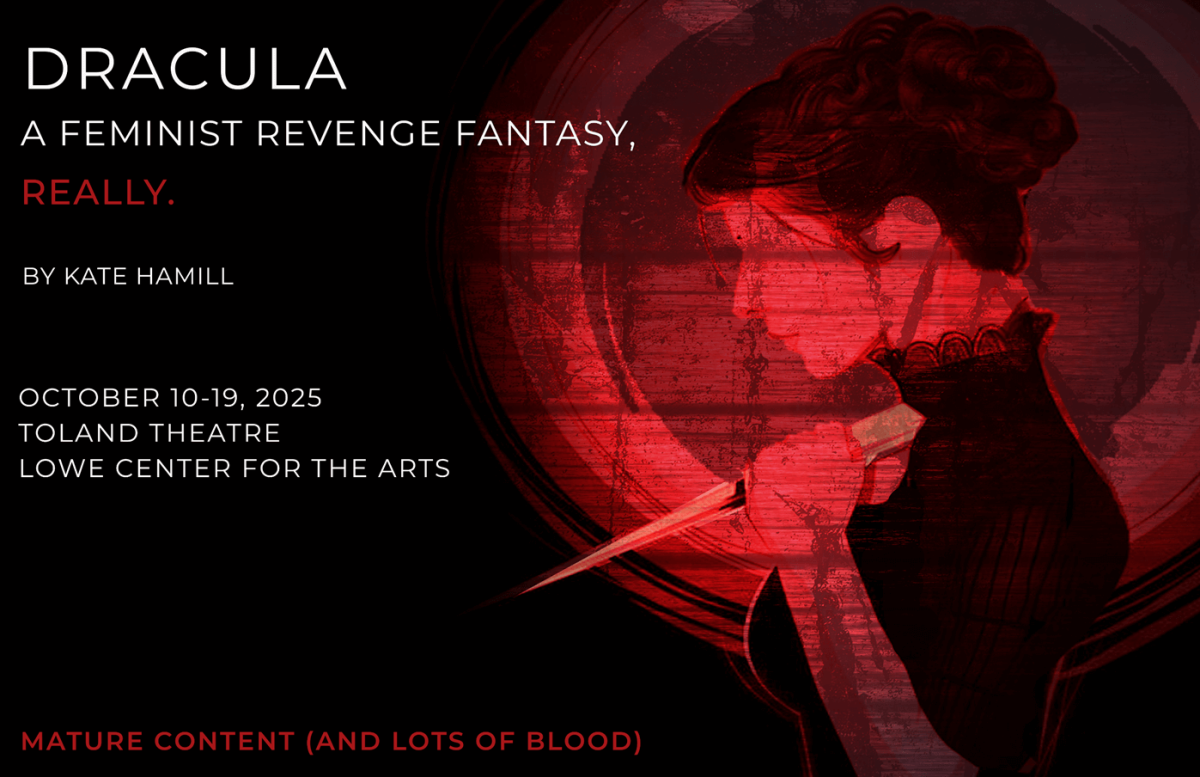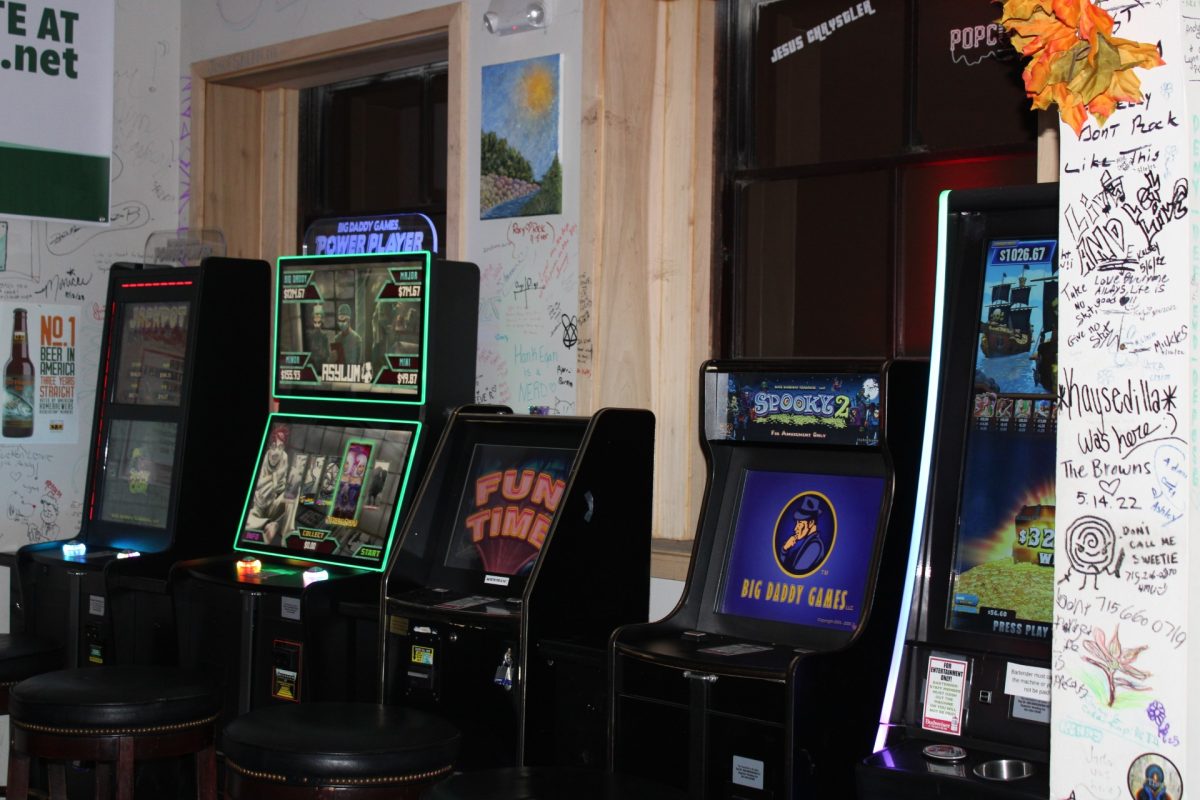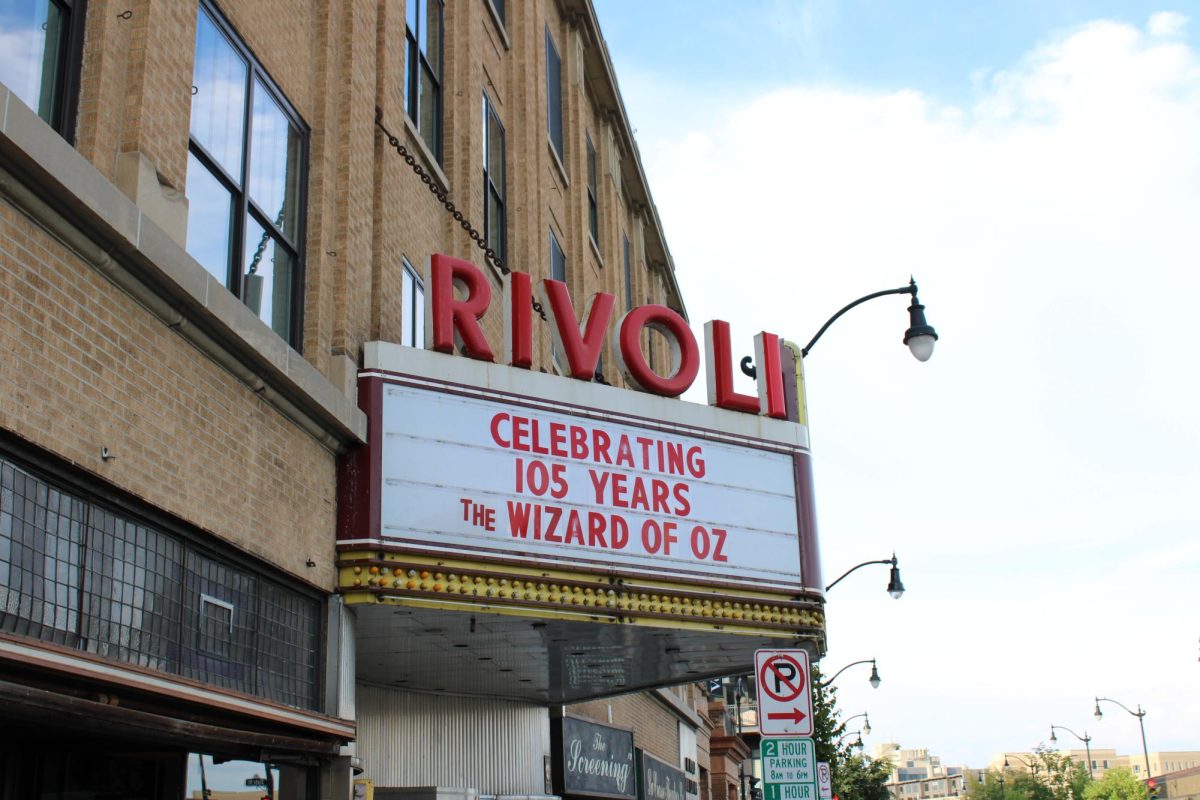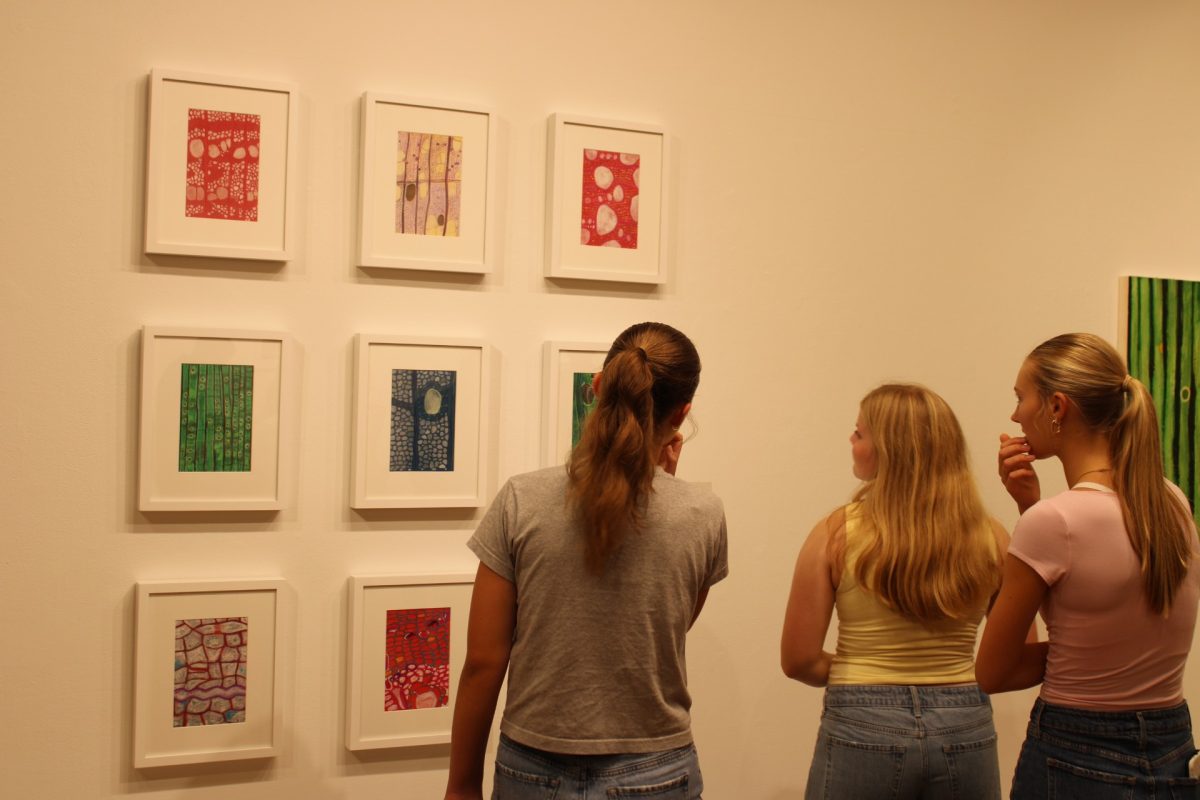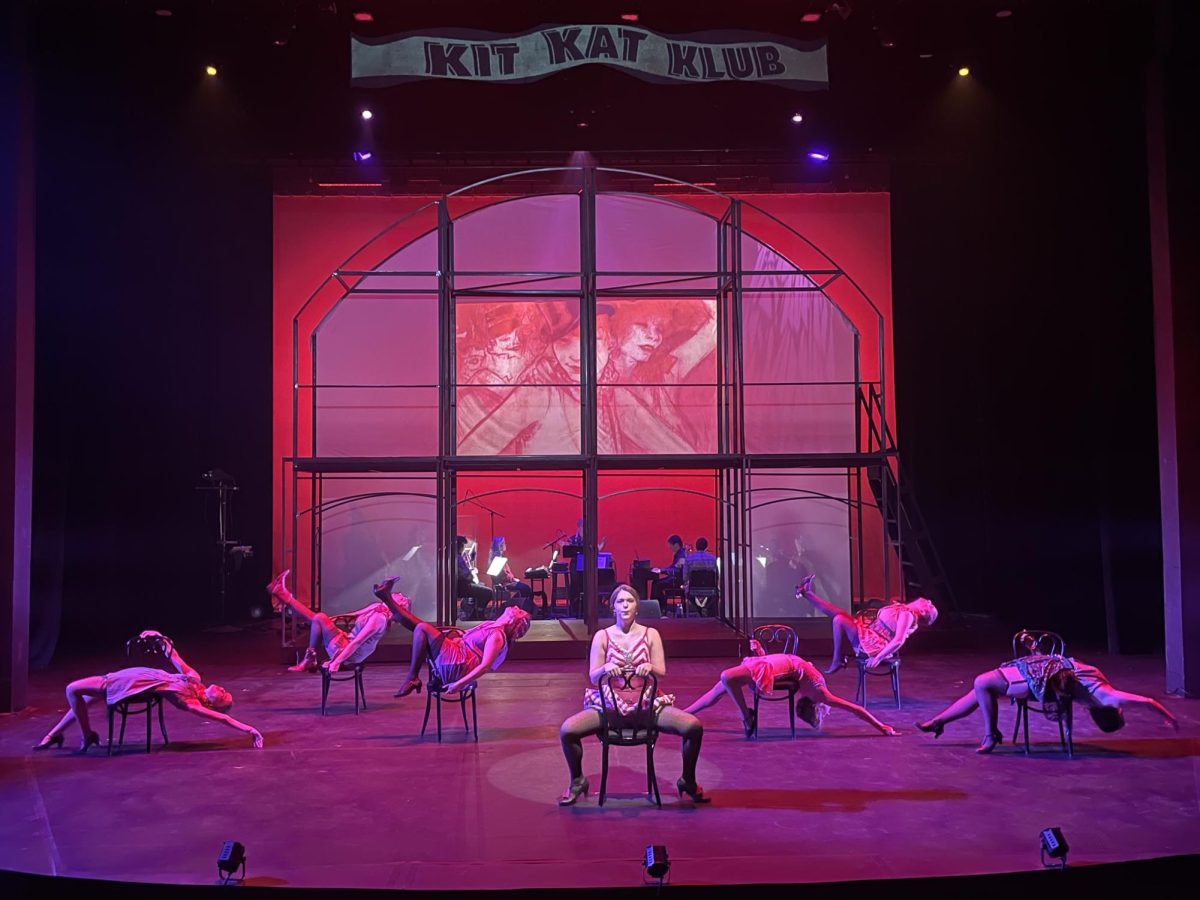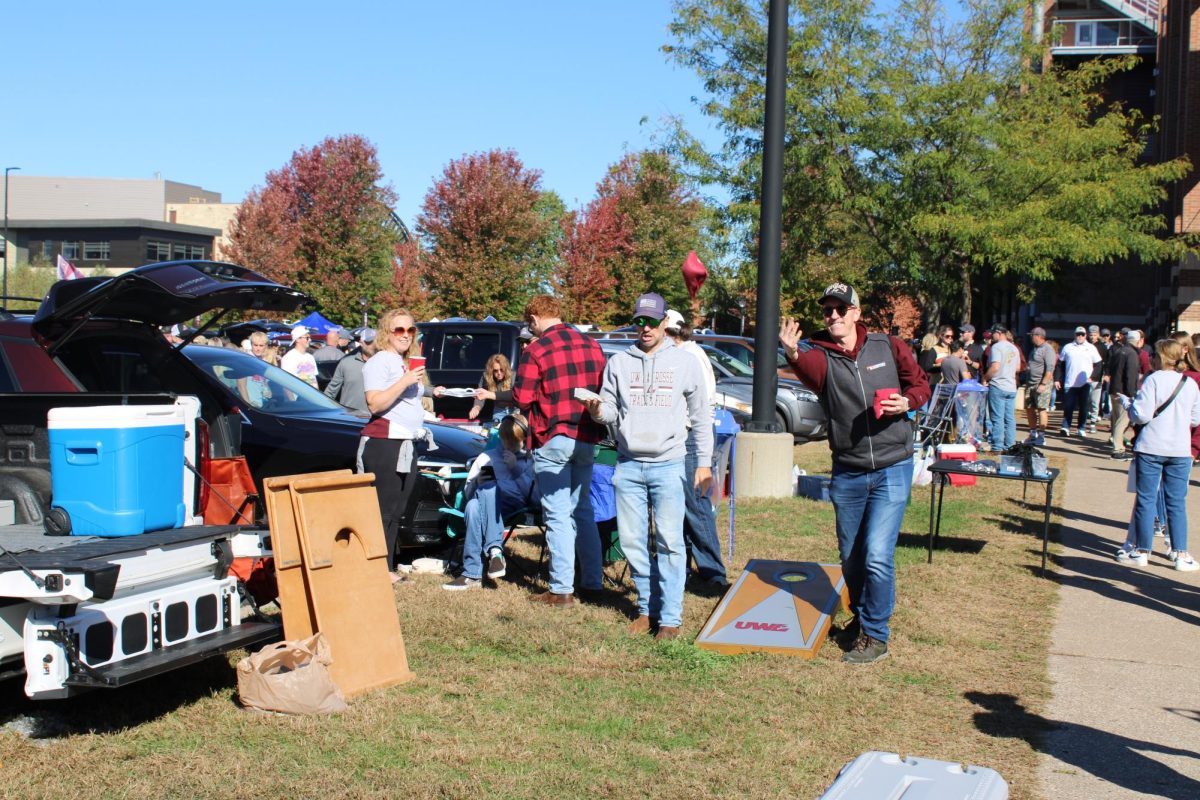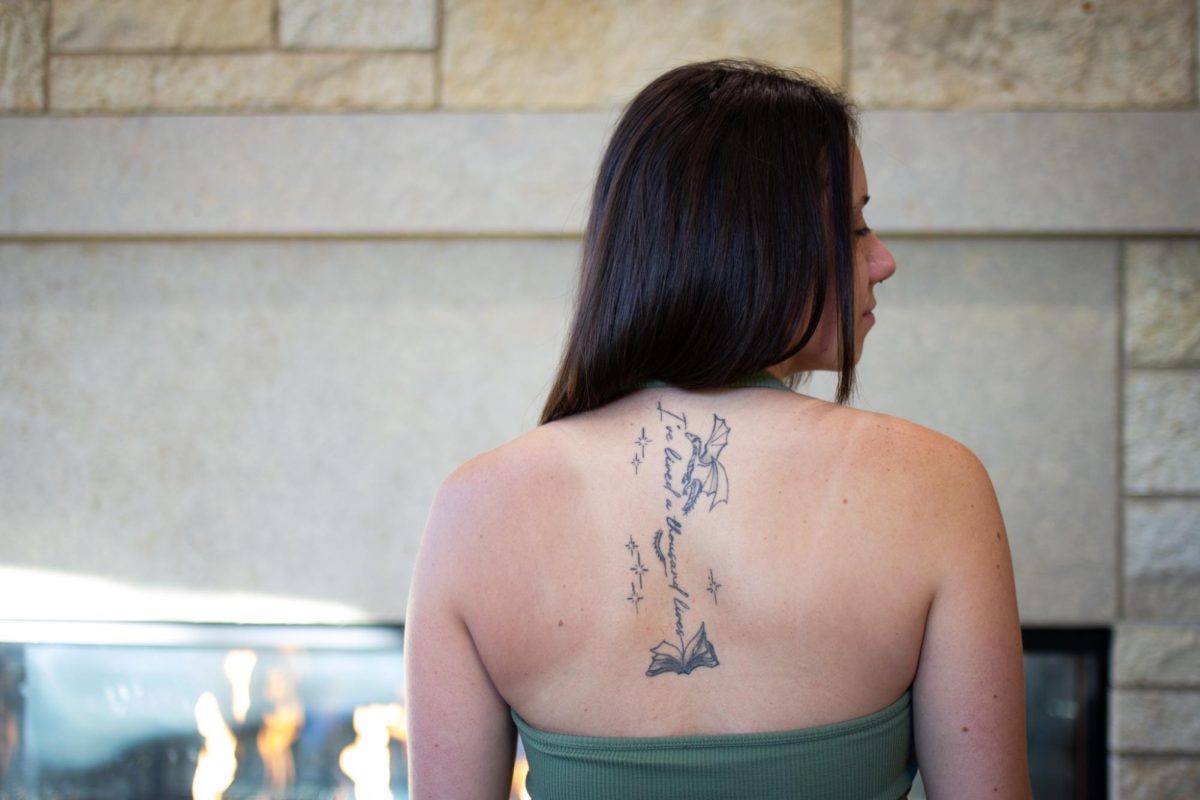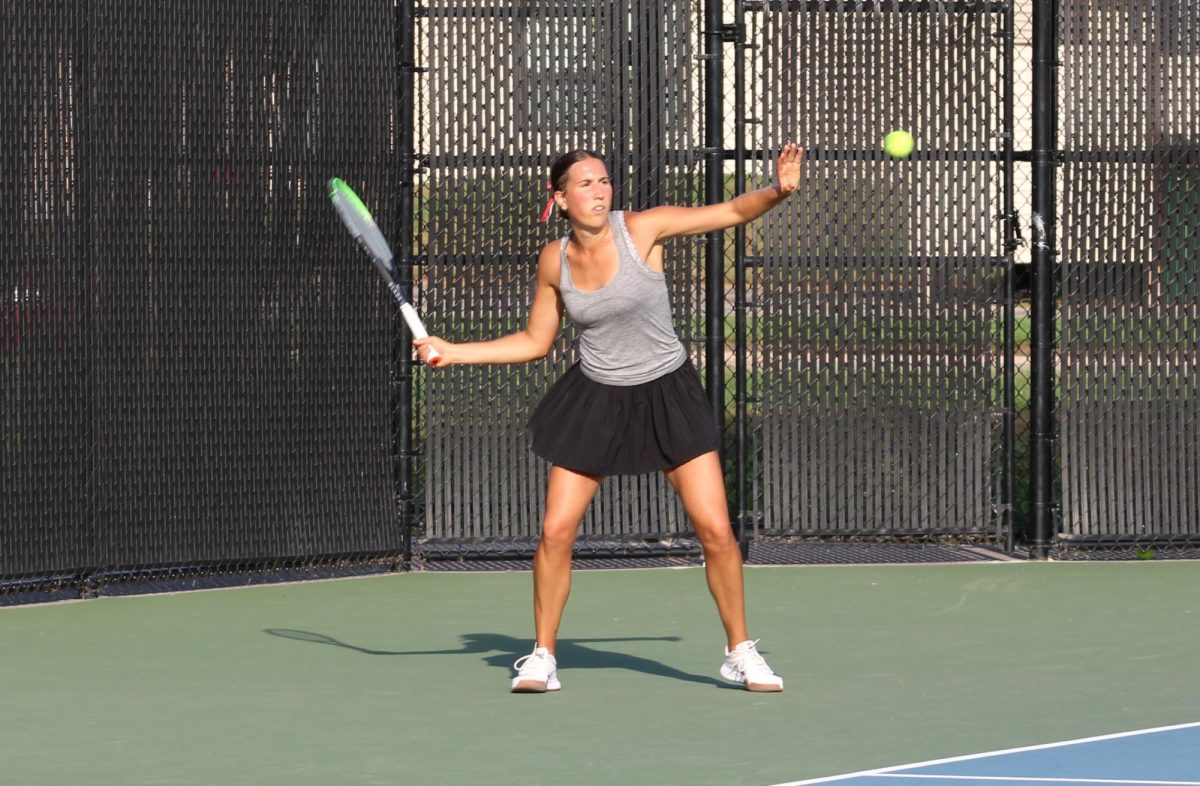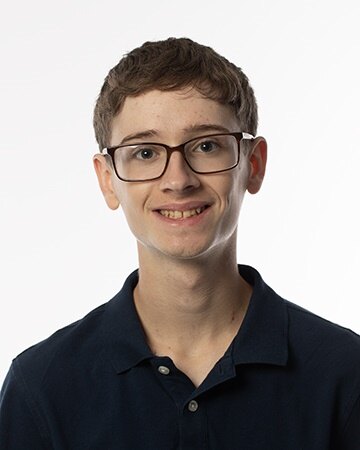The University of Wisconsin-La Crosse hosted its fifth major TEDxUWLaCrosse event on Thursday, Oct. 10 in the Bluffs Ballroom in the Student Union. This year’s theme, “The Story I Tell Myself,” encourages the audience to “explore the inner narratives that shape our lives.”
Presenting first was Dr. Andrew Ives, director of the UWL ACCESS Center, which assists students with disabilities. His talk, titled “Exploring Self-Love by Embracing Interdependence,” called for a more inclusive campus environment by celebrating students’ togetherness.
Covering topics such as his personal experiences in college, the mental health of LGBTQ students and the disability rights movement, Ives explained that in the search for creating systems of support for disabled and/or marginalized populations, not all of the systems made way for equal access.
Ives spoke about how LGBTQ students who were labeled or identified as mad, mentally ill, neurodivergent and/or disabled have a desire to connect with others but have difficulty making and maintaining connections. Ives’ solution to this was self-love through interdependence.
“Interdependence recognizes that…we need each other to survive,” said Ives.
He gave four steps: identify community, identify your needs, identify your gift and celebrate interdependence.
“We can’t love ourselves by ourselves. We have to have interdependence,” said Ives. “Interdependence is the thing that unlocks self-love.”
In between Ives and the next speaker was the first of two improvised performances by Assistant Professor of Theatre and Dance Ashley Dobrogosz and Assistant Teaching Professor of Music Jon Ailabouni. Ailabouni played the trumpet while Dobrogosz performed an interpretive dance routine.
Presenting second was Dr. Sona Kazemi, assistant professor of Race, Gender and Sexuality Studies. Kazemi’s talk, titled “Woman, Life, Freedom: Redefining Social Justice in a Globalized World,” focused on the “Woman-Life-Freedom” movement in Iran and ending gender apartheid.
Kazemi explained how Islamic fundamental regimes, such as the Taliban, use the act of veiling or wearing a hijab to oppress women and enforce gender/sexual apartheid. Kazemi recounted how women throughout the mid-20th century had started unveiling themselves as a way to fight back against their oppression, but that this all changed as fundamental regimes began to take over.
However, Kazemi explained that there have been developments in the movement in recent years. She focused on the “Woman-Life-Freedom” movement in Iran, which began in September 2022 after Mahsa Zhina Amini was murdered at the hands of the Iranian Guidance Patrol or “Morality Police” for opposing mandatory hijab rules – the same police force that Kazemi herself has been harmed by.
Kazemi examined how oppressive regimes in Muslim countries tie gender inequality issues, such as veiling, together with the religion and culture, making the problems untouchable by the outside world. Kazemi called for a change.
“We should be able to critique the hell out of ideas and rip them apart…but we shouldn’t hate people,” said Kazemi. “We should criticize racialization and hate towards Muslims while preserving our rights to critique Islam or Islamic practices.”
Kazemi closed her talk by calling upon the audience to “come out of [their] comfort zones,” and consider how other people around the world may be impacted by beliefs or attitudes they hold.
“Join me; go beyond subjectivities fragmented by identity and geopolitics,” said Kazemi. “Join me, stand with me, and say: ‘Woman, life, freedom.’”
Ailabouni and Dobrogosz had their second performance of the night, and then it was time for Dr. Carolyn Colleen Bostrack’s presentation. Bostrack, an author, entrepreneur and humanitarian, delivered her talk titled “Rewrite Your Broken Story.”
“In life, we’re either in a storm, just getting out of one, or heading right into another,” opened Bostrack.
Bostrack then told of several adverse childhood experiences, or ACEs, she endured while growing up. Her neighbor abused her when she was young, her mother suffered undiagnosed mental illness and was a severe hoarder and strangers sought to take advantage of her and/or her mother’s situation. There were “breezes of laughs,” but Bostrack and her sister would have to quickly turn into “emotional meteorologists” to navigate their mother’s storms.
Bostrack’s hardships did not end with adulthood. She recounted the abuse she suffered at the hands of her first husband, and explained how abused people can become trapped in a cycle of abuse. In the darkness that was her marriage, though, she found light: her daughter.
One night, Bostrack was holding her daughter, who had not stopped crying for two months. Bostrack recalls asking for anyone to send her a sign. When she looked back down, she saw that her daughter had ceased crying.
“[My daughter] looked into my eyes as if looking into my soul, saying, ‘I’m your sign,” said Bostrack. “And in that moment, a fire was born.”
She filed a restraining order against her first husband, enrolled in school full-time, worked full-time and provided for her daughter – with no child support. She said that while it all was overwhelming, she was able to sift through her challenges “five minutes at a time.”
Bostrack explained earlier in her talk that people who had six or more ACEs had a life expectancy that was 20 years shorter than the average person. Bostrack, determined not to let life’s storms wash her away, developed a method for navigating them.
Her three steps, breath, focus and take fierce action (BFF for short), are tools for disrupting storms and an opportunity to change your life story.
“We can rewrite our neural pathways in order to seek change and evolve,” said Bostrack. “Five minutes at a time.”

